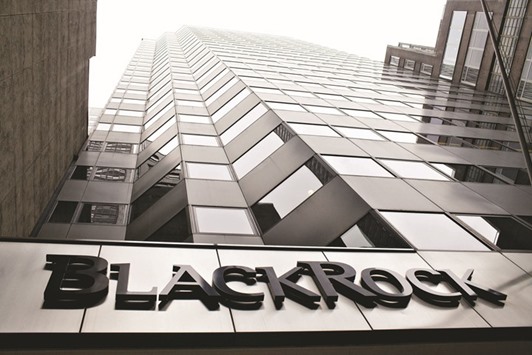BlackRock Inc, the world’s largest money manager, has been adding to its holdings of Indian bonds this year, drawn by attractive carry returns and the promise of more economic reforms.
“India is our favourite market in the Asian fixed-income space,” Neeraj Seth, the Singapore-based head of Asia credit at the firm, which oversees $5.1tn, said in a phone interview. “Our bullish view is guided by strong macroeconomic and political stability, reform momentum and carry positions, and in dollar credit, it’s the spread on the risk-adjusted basis.’’
The money manager’s liking for rupee bonds is shared by Aberdeen Asset Management Plc and Aviva Investors Asia Pte, who say India’s domestic-driven economy somewhat insulates it from global risks including a potential rise in protectionism.
Foreign funds are returning to local debt after a four-month hiatus as the government stuck to the path of fiscal consolidation in its February 1 budget and the central bank’s surprise decision to hold interest rates sent local yields soaring.
“The budget was very sensible, very prudent and against all market expectations, kept the path of fiscal discipline,” Seth said. “That’s getting reflected in the markets in terms of the stability of the currency, which has outperformed pretty much every single emerging-market currency.’’
BlackRock likes “high-quality corporate bonds” in India’s local market and is “bullish on short-end of the curve, three to five years, for carry,’’ Seth said. The money manager has been increasing positions “up to the five-year point of the curve,’’ he added.
India’s economic growth topped 7% for six straight quarters through September 2016, thanks to government spending and domestic demand, adding to the appeal of a bond market that offers the second-highest sovereign yields among major Asian countries. Borrowing in dollars to purchase rupee assets has earned 2.5% in the past six months, the highest carry returns in the region, data compiled by Bloomberg show.
While the rupee may weaken against the US dollar, it will still outperform other Asian and emerging-market currencies, according to Leong Lin Jing, a Singapore-based investment manager at Aberdeen Asset, which oversaw $374bn globally at the end of December.
“The bond market yield is high enough to offset the depreciation in the currency,” she said. “By and large, we’re still quite positive on the story and we take our rupee risk there unhedged.”
The benchmark 10-year yield jumped 40 basis points last week, the most since 2013, as policy makers signaled an end to the monetary easing cycle. It rose one basis point to 6.85% in Mumbai on Friday. A resumption of bond inflows and a budget viewed as fiscally prudent and pro-growth spurred a 1.9% gain in the rupee in the last three weeks, the best performance in Asia. The currency rose 0.1% to 67.02 a dollar on Friday.
“The rupee has been less volatile than some of the other currencies and it’s probably a bit more insulated from Trump’s protectionist rhetoric,” said Mary Nicola, an investment strategist at Aviva Investors in Singapore. “We still like India, especially the currency.”
Since taking power in 2014, Prime Minister Narendra Modi has pursued a set of policies aimed at reviving the economy, curbing corruption and managing public finances better. His recent reforms included the demonetization of large-denomination rupee bills to tackle tax evasion and unaccounted wealth, and paving the way for a national goods-and-services tax.
“India is a story which global investors will continue to like in 2017,” said BlackRock’s Seth. “It is one of the brightest spots in the emerging-market complex.”
BlackRock headquarters is seen in New York. The world’s largest money manager has been adding to its holdings of Indian bonds this year, drawn by attractive carry returns and the promise of more economic reforms.

BlackRock Inc, the world’s largest money manager, has been adding to its holdings of Indian bonds this year, drawn by attractive carry returns and the promise of more economic reforms.
